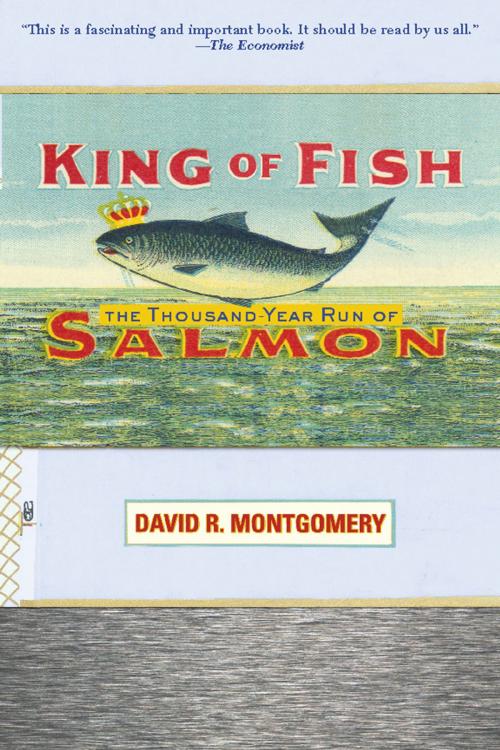King of Fish
The Thousand-Year Run of Salmon
Nonfiction, Social & Cultural Studies, Social Science, Anthropology| Author: | David Montgomery | ISBN: | 9780786739936 |
| Publisher: | Basic Books | Publication: | April 28, 2009 |
| Imprint: | Basic Books | Language: | English |
| Author: | David Montgomery |
| ISBN: | 9780786739936 |
| Publisher: | Basic Books |
| Publication: | April 28, 2009 |
| Imprint: | Basic Books |
| Language: | English |
The salmon that symbolize the Pacific Northwest's natural splendor are now threatened with extinction across much of their ancestral range. In studying the natural and human forces that shape the rivers and mountains of that region, geologist David Montgomery has learned to see the evolution and near-extinction of the salmon as a story of changing landscapes. Montgomery shows how a succession of historical experiences -first in the United Kingdom, then in New England, and now in the Pacific Northwest -repeat a disheartening story in which overfishing and sweeping changes to rivers and seas render the world inhospitable to salmon. In King of Fish, Montgomery traces the human impacts on salmon over the last thousand years and examines the implications both for salmon recovery efforts and for the more general problem of human impacts on the natural world. What does it say for the long-term prospects of the world's many endangered species if one of the most prosperous regions of the richest country on earth cannot accommodate its icon species? All too aware of the possible bleak outcome for the salmon, King of Fishconcludes with provocative recommendations for reinventing the ways in which we make environmental decisions about land, water, and fish.
The salmon that symbolize the Pacific Northwest's natural splendor are now threatened with extinction across much of their ancestral range. In studying the natural and human forces that shape the rivers and mountains of that region, geologist David Montgomery has learned to see the evolution and near-extinction of the salmon as a story of changing landscapes. Montgomery shows how a succession of historical experiences -first in the United Kingdom, then in New England, and now in the Pacific Northwest -repeat a disheartening story in which overfishing and sweeping changes to rivers and seas render the world inhospitable to salmon. In King of Fish, Montgomery traces the human impacts on salmon over the last thousand years and examines the implications both for salmon recovery efforts and for the more general problem of human impacts on the natural world. What does it say for the long-term prospects of the world's many endangered species if one of the most prosperous regions of the richest country on earth cannot accommodate its icon species? All too aware of the possible bleak outcome for the salmon, King of Fishconcludes with provocative recommendations for reinventing the ways in which we make environmental decisions about land, water, and fish.















